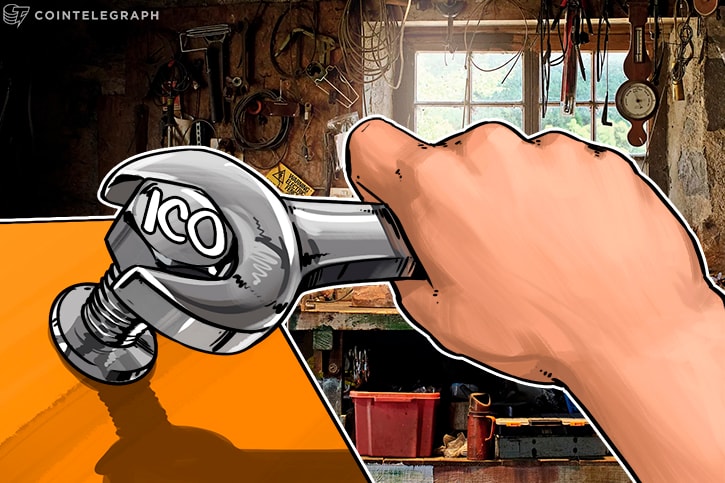Expert Blog is Cointelegraph’s new series of articles by crypto industry leaders. It covers everything from Blockchain technology and cryptocurrencies to ICO regulation and investment analysis. If you want to become our guest author and get published on Cointelegraph, please send us an email at mike@cointelegraph.com.
Investors will treat projects as longer-term ventures and thoroughly examine the founders’ experience and project roadmaps. The rising barriers can potentially heal the market and imminently lead to the improvement of the projects’ quality, which will bring more institutional investors to the crypto industry. All this combined will create grounds for a sustainable legal basis and breath new life into that we will have all the chances to witness in 2018.
ICO reality check reveals insanity
At the early days of ICOs, many of us cherished the low barriers of tokenization that were meant to democratize access to funding. Indeed, the tokenization implies that any entity is free to issue its own currency that could be backed simply by an idea or by the founders’ reputation. Once issued, tokens can be easily traded in the open markets, which makes ICO’s and ITO’s a superior form of financing over the traditional VC, as the exit happens right away.
However, by the end of 2017, a year that we can justifiably call “The Year of the ICO,” we should acknowledge that something has gone totally wrong. Instead of the ambitious and promising projects that many of us expected to enjoy, the cryptomarket has been swamped with Frankenstein monsters that puff up artificially integrated Blockchain technology into trivial business ideas. Ironically, the first to spot and thrive on the ICO market were the scam projects that would never be implemented, and the fraudsters seeking easy cash. How come?
The vicious cycle of watchdogs and fraudsters
Legislative watchdogs in general and the SEC in particular endeavour to protect non-expert investors from losing money. However, watchdogs are slow to pull ICO’s out of the grey zone, and all their current efforts are only making things worse. Their legal half-measures have resulted in a few covert rules spreading over the token market:
- Not allowing American residents access to token sales to avoid prosecutions from the SEC. (Though nobody can regulate keeping Americans from using a VPN).
- Not issuing tokens that can be classified as securities, such as those entitling the holders to dividends, to a stake in the issuing company or a voting right. (The Howey test here is a widespread tool to qualify the token as non-security, though the test doesn’t have any legal validity).
- Calling your token “utility” one. If everyone pretends that the token is a prepayment for Blockchain-based services, then possibly it will not attract the watchdogs’ attention.
Witch-hunting games between fraudsters and watchdogs have turned a brand new investment vehicle into a dubious adventure for high-quality projects. The latter have to struggle through the information buzz of scam projects and to bear the exorbitantly rising costs of an ICO launch. Meanwhile, the payoff is not obvious - a good project’s efforts may be in vain, due to the unfavorable market, or they may accidentally become innocent prey to the judge’s sword. In no way can lawyers guarantee that watchdogs won’t question the justification of an ICO.
Dark before dawn
The original idea of an equally accessible crowdfunding mechanism was annihilated in “The Year of the ICO.” In a nutshell, marketing costs went up due to the overcrowded competition for investors’ attention. Regulators tightened the screws. By capitalizing on the instability of cryptocurrencies’ legal base, lawyers charge projects hefty fees that harm, first and foremost, diligent projects. However, fraudsters do not bear those costs as they are simply not concerned with legal compliance. Therefore, fraudsters bloom in the ICO market, thus approaching an inevitable market drop in the near future due to the overall loss of trust.
The forthcoming crisis can bring about positive consequences such as rigor project evaluation tools likely borrowed from VCs. Investors will treat projects as longer-term ventures and thoroughly examine the founders’ experience and project roadmaps. The rising barriers can potentially heal the market and imminently lead to the improvement of the projects’ quality, which will bring more institutional investors to the crypto industry. All this combined will create grounds for a sustainable legal basis and breath new life into the ICO market 2.0 that we will have all the chances to witness in 2018.
Maxim Roslyakov is а сo-founder of Modern Token crypto-advisory agency. He presents a unique combination of managerial and entrepreneurial experience in IT, digital marketing and e-commerce.
This opinion article presents the contributor’s expert view and it may not reflect the views of Cointelegraph.com. This content has undergone editorial review to ensure clarity and relevance, Cointelegraph remains committed to transparent reporting and upholding the highest standards of journalism. Readers are encouraged to conduct their own research before taking any actions related to the company.


